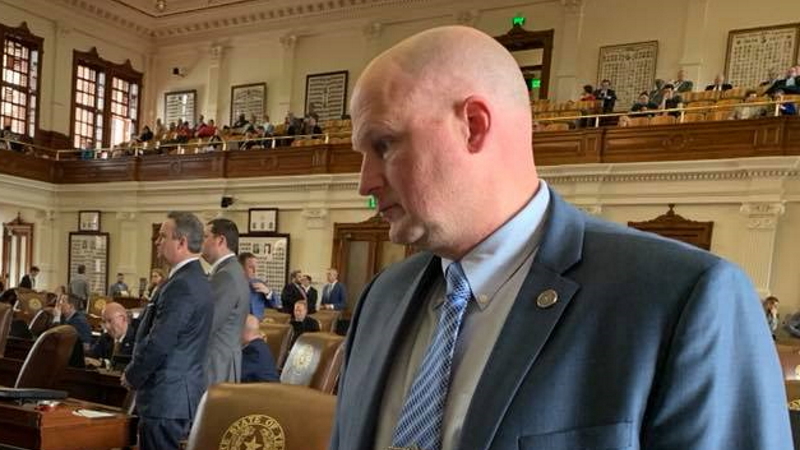The Texas House of Representatives recently passed a bill to increase criminal penalties and make jail time mandatory for the crime of obstructing emergency vehicles.
House Bill 9 will make blocking a roadway a state jail felony if the offense also obstructs the passage of an emergency vehicle or blocks a hospital entrance, according to the Texas Tribune. The bill was co-authored by Texas State Rep. Tony Tinderholt (R-Arlington) and passed the House by 90-55. Eighteen Republicans, including Tinderholt, sponsored the legislation.
"There have been instances where people who hate the police actually blocked emergency vehicles from assisting officers injured while trying to stop riots," Tinderholt wrote in a May 8 Facebook post. "HB 9 would make those disgusting actions punishable by more severe penalties."
The offense is currently a misdemeanor charge and carries a punishment of up to six months in jail. A state felony charge would impose a punishment of up to two years in a Texas state prison. The legislation would also require those convicted to spend at least 10 days in jail, even if they are sentenced to probation.
“In an emergency, seconds matter,” state Rep. Stephanie Klick, R-Fort Worth, said, the Texas Tribune reported. “We all have a constitutional right to peaceably assemble under the First Amendment, but what we don’t have is a right to prevent authorized emergency vehicles that can provide life saving care.”
The legislation was filed in response to a September incident in California where two deputies were shot in their patrol car after anti-police protesters allegedly blocked an emergency room entrance to admit them. Rep. Joe Moody, El Paso based Democrat and co-chair of the House Criminal Justice Reform Caucus, criticized the bill for imposing a mandatory 10 days in jail even if the person had no criminal history.
“We are reacting to one case out of California and changing the law in Texas because of it,” he said on the House floor last week. “And we’re doing it in a way that does not sync up with what we’ve been doing for years on criminal justice reform.”
The high-profile murder of George Floyd by officer Derek Chauvin in Minneapolis last year set off nationwide protests against police brutality and racial injustice. At some protests in Texas, demonstrators were arrested for allegedly throwing rocks, damaging property and obstructing highways, ABC 13 News reported.
During a disorderly protest at the Texas Capitol in May, over a dozen demonstrators allegedly spray painted the building and threw water bottles. The Texas Department of Public Safety spent months investigating and tracking down perpetrators, but many of the cases were rejected by prosecutors.
The bill now heads to the Senate for further consideration.

